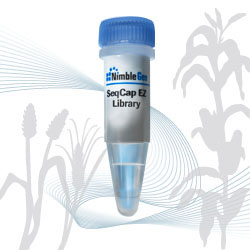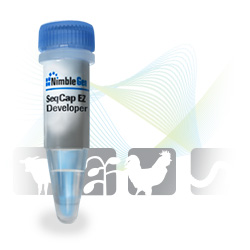Variation of DNA methylation is known to contribute to multifactorial disease susceptibility. However, current approaches for global methylome assessments require interrogation of the whole genome by next-generation sequencing (i.e. whole-genome bisulfite sequencing, WGBS), which is costly and inefficient due to invariable states of most sites across individuals, or are biased towards limited set of sites enriched in CpG-dense regions such as promoters (e.g. Illumina450K array or reduced representation bisulfite sequencing). To overcome these limitations, our featured speaker will present a new approach: MethylC-Capture Sequencing (MCC-Seq), for customizable and cost-effective sequencing of disease or tissue-targeted functional methylomes that simultaneously provides information on genetic variation.
To illustrate MCC-Seq, this presentation will discuss how WGBS was used on adipose tissue samples and public databases to design a MCC-Seq adipose-specific panel. Its efficiency was established for high-density interrogation of methylome variability in all sequence contexts by systematic comparisons with other approaches, and demonstrated its applicability by identifying novel methylation variation within enhancers strongly correlated to plasma triglyceride and HDL cholesterol, including at CD36. The comprehensive adipose-panel allows parallel assessment of tissue methylation and genotypes at approximately 4M and 3M sites, respectively. The study also demonstrates that MCC-Seq is as accurate as alternative epigenomics approaches but enables more efficient cataloguing of functional and disease-relevant epigenetic and genetic variants for large-scale disease association studies.
Speaker

Dr. Elin Grundberg, Assistant Professor of Human Genetics, McGill University
Dr. Elin Grundberg, Assistant Professor of Human Genetics, McGill University – Elin Grundberg completed her PhD (2006) at Uppsala University, Sweden focusing on functional analysis of genetic variants altering osteoporosis-related traits. In early 2007 she joined the McGill University and Genome Quebec Innovation Centre as a postdoctoral fellow. During her time at McGill she worked on developing human cell models as a tool to disentangle the molecular basis of complex disease associations. In 2009, she was appointed as a senior postdoctoral researcher jointly at the Wellcome Trust Sanger Institute and Kings’ College London, UK where she was the lead analyst for the international TwinsUK-MuTHER Consortium, which included developing a major resource of detailed genomics and epigenomics data from multiple disease-targeted tissues from twins. She joined the McGill faculty and the Department of Human Genetics as an Assistant Professor in 2012 where her group is applying various next-generation sequencing approaches to understand genetic and epigenetic factors underlying complex disease susceptibility. She is collaborating with a number of large research consortia and is the author of almost 50 scientific papers. She holds a Canada Research Chair (tier 2) in Disease Genomics and Epigenomics.
Who Should Attend?
Genetics and genomics researchers, principle investigators, laboratory scientists, genome center directors, clinical and translational researchers, cancer/oncology researchers, agricultural genetic researchers
Xtalks Partner
Roche NimbleGen
Roche NimbleGen is an innovator in the life sciences market focused on research activities and manufacturing target enrichment probe pools for DNA sequencing. Capitalizing on the efficiencies inherent with parallel enrichment, researchers can now design economical, high throughput, and time-saving next-generation sequencing experiments. Next-generation sequencing combined with Sequence Capture probe pools offers researchers a clearer understanding of genomic structure and function in order to understand the impact of genes on biological processes. We are part of the innovations in sequencing solutions for life science research, now and in the future.
Media Partner
You Must Login To Register for this Free Webinar
Already have an account? LOGIN HERE. If you don’t have an account you need to create a free account.
Create Account





